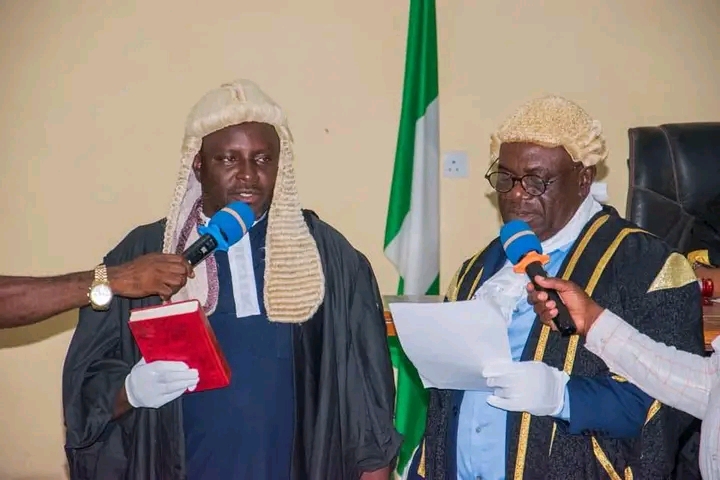By Abdul Lauya
The political temperature in Benue spiked again on Saturday evening as Hon. Alfred Berger was sworn in as the new Speaker of the State House of Assembly.
The ceremony followed the sudden resignation of Rt. Hon. Aondona Dajoh earlier in the day, marking a dramatic twist in months of legislative upheaval.
The Assembly has been engulfed in tension since the beginning of 2024 when rival factions accused each other of undermining legislative independence.
By March, the crisis had deepened so badly that the National Assembly threatened to invoke Section 11 of the Constitution to take over the Benue legislature.
In April, allegations of unconstitutional sittings and parallel sessions widened cracks in the House, raising fears of paralysis.
By June, Speaker Dajoh came under mounting pressure from colleagues who accused him of colluding with the executive and undermining the Assembly’s autonomy.
On Thursday, August 22, a plot to impeach him collapsed after his loyalists suspended four lawmakers for three months over alleged misconduct.
Governor Hyacinth Alia quickly distanced himself from the failed impeachment, stressing his respect for separation of powers and reaffirming support for the legislature.
Deputy Governor Sam Ode also denied online rumours of a rift with Alia or plans to replace him before 2027, describing such claims as baseless and distracting.
But by Saturday morning, reports swirled that Governor Alia had turned to Benue’s two paramount rulers, the Tor Tiv and the Oche Idoma, to shield himself from possible impeachment and redirect pressure towards the Speaker.
Hours later, Speaker Dajoh resigned from office under unclear circumstances, paving the way for Alfred Berger’s emergence as his replacement.
The fast-moving developments underscore how fragile Benue’s political balance has become, where legislative intrigues, ethnic pressures, and executive survival battles now intersect.
With Berger’s swearing-in, attention has shifted to whether his leadership can stabilize the Assembly or if this is only the latest round in a deepening power struggle that may again invite Abuja’s intervention.
Beneath the turbulence lies the shadow of 2027, where every twist in Makurdi’s corridors of power is now being read as an early rehearsal for the state’s next great political showdown.
For advert placement and inquiries, publication of press releases, and news coverages, please call: Phone: 08052898434 Email: editor@eyereporters.com, click here to view the advert rates.



